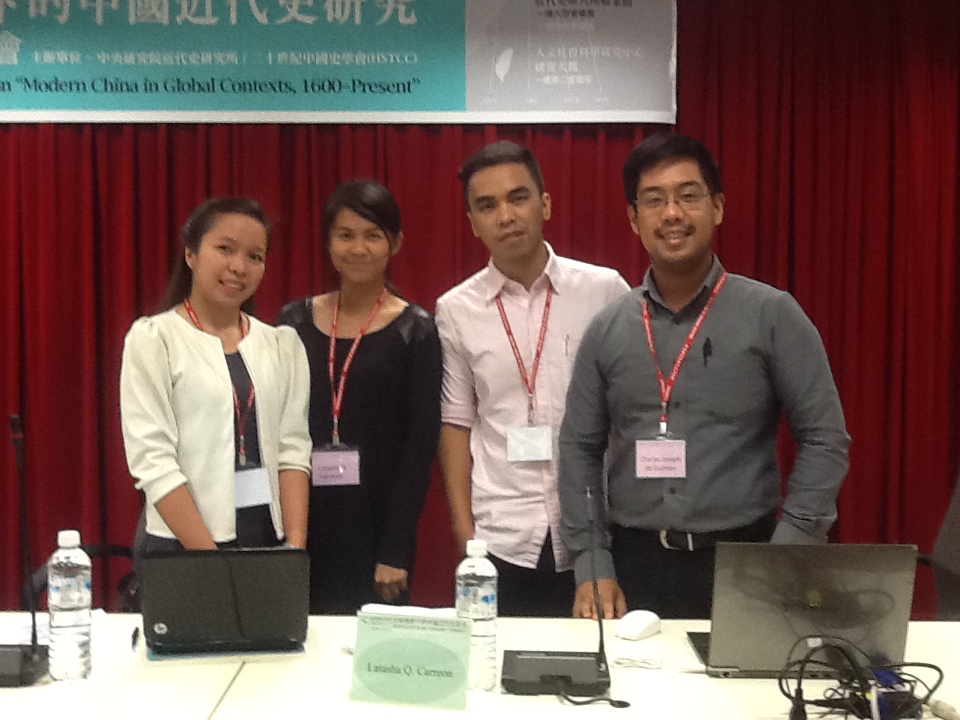
The Asian Center contingent are all China Studies majors, and they comprised a panel, “Chinese Transnational Phenomena in the Philippines” whose overall theme centered on ethnicity, identity, and migration.
Ivy Marie Ganadillo discussed “Chinese Migration and the Continuous Search for Freedom” in which shereviewed and reanalyzed the push factors of old and new Chinese migrants. She provided new analyses and descriptions of recent Chinese migration and revealed that it is partly driven by a “search for freedom.”
Latasha Carreon presented “Cross-Border Student Mobility: Chinese Students in the Philippines.” Through interviews with selected students, she shows that studying in the Philippines helps the students obtain quality education that they cannot afford back home. The respondents also revealed that, apart from their degrees, their English skills would make them more competitive in China’s labor market. Ms. Carreon’s findings are relevant amidst an upsurge of graduate unemployment in China, which is caused mismatches between the curricula of higher education and the demands of the domestic labor market.
In “Transformation and Development of Selected Chinese Communities in the Philippines,” Charles Joseph de Guzman looked at the development of other Chinatowns in Manila. He profiled these different Chinese communities, compared and contrasted them, and projected the future of these Chinese communities based on various elements that affect their development and transformation.
Harold Diokno examined the “Identity Formations among Chinese-Filipinos: Implications to Nationalism.” Surveying a number of Chinese Filipinos, Mr. Diokno analyzed the current generation's perceptions of national identity vis-a-vis the growing presence of China in the region.
The Asian Center offers masters degrees in Asian Studies covering four areas of specialization: Northeast Asian Studies, Southeast Asian Studies, South Asian Studies, and West Asian Studies. The Chinese Studies program of the Center features courses on the politics and governance, social and economic development, and culture and society of China. The Center also offers an M.A. and a Ph.D. in Philippine Studies. Like the Asian Center on Facebook and follow us on Twitter @upasiancenter.
Photo (L–R): Ivy Ganadillo, Latasha Carreon, Harold Diokno, and Charles de Guzman. Courtesy of Charles de Guzman.

